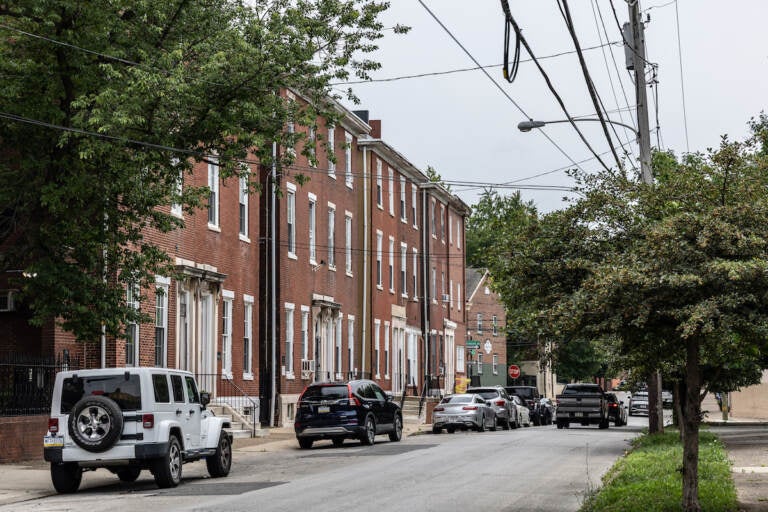‘A huge deterrent effect’: Philly City Council seeks to strengthen anti-discrimination law
The Fair Practices Ordinance prohibits landlords from rejecting potential tenants based on how they would pay rent.

File photo: Rowhouses in Philadelphia’s Spring Garden neighborhood. (Kimberly Paynter/WHYY)
Have a question about Philly’s neighborhoods or the systems that shape them? PlanPhilly reporters want to hear from you! Ask us a question or send us a story idea you think we should cover.
Philadelphia City Council has advanced legislation designed to strengthen a city law that protects against housing discrimination.
The city’s Fair Practices Ordinance prohibits landlords and property managers from discriminating against people based on what’s known as “source of income,” including anyone who would pay rent with a housing voucher.
The ordinance lists “housing assistance programs” as a protected source of income, but does not specifically mention the Housing Choice Voucher Program, a federal rent subsidy offered through the Philadelphia Housing Authority that provides deep discounts to a limited number of residents with low income.
The bill, introduced by Councilmember Jamie Gauthier in February, would change that, while outlining in more detail that it is illegal to communicate that vouchers cannot be used to rent or buy a property.
Approved after a hearing on Wednesday, the measure would also give residents the right to sue if the Philadelphia Human Relations Commission cannot complete its investigation within 100 days. The commission, tasked with enforcing the ordinance, currently has a year to do that.
“Philadelphia landlords overwhelmingly ignore that law and openly discriminate against voucher holders, preventing our neighbors from accessing the safe, stable and affordable homes that are crucial for a successful life, healthy communities, and a vibrant city,” said Gauthier, who chairs the council’s Committee on Housing, Neighborhood Development, and the Homeless.
The bill moves forward as the city continues to experience an affordable housing crisis compounded by historically high rents, a reality Gauthier fears will make Philadelphia unaffordable for its most vulnerable residents, including the city’s 20,000 voucher households, the majority of which are Black.
Philadelphia has a history of landlords being hesitant to rent to voucher holders. A 2018 study from the Urban Institute found that 67% of landlords refused to accept vouchers. That figure went up to 83% in “low poverty” neighborhoods.
This kind of discrimination is part of the reason why it typically takes months for voucher holders to find a landlord willing to take them on as a tenant. It also keeps some residents living in substandard housing because they cannot find a better place to rent, advocates testified.
The goal of the legislation is to help reduce that harm.
“When landlords understand that there are consequences for ignoring Philadelphia law, that has a huge deterrent effect,” said Mimi McKenzie, legal director of the Public Interest Law Center.
The bill is supported by the Philadelphia Commission on Human Relations, a body advocates argue needs more resources so it can move more quickly on complaints filed by voucher holders, particularly those requesting an investigation while they actively search for landlords to accept their subsidy before it expires.
Executive Director Kia Ghee said Wednesday the bill would provide greater protections to voucher holders, increasing the likelihood they will be able to rent in “higher opportunity” neighborhoods.
“Despite the undeniable benefits of this program, many families still face far too many barriers when seeking a place to live — simply because of how they paid their rent,” said Ghee.
Gauthier’s measure is part of a legislative package launched to protect tenants and homeowners with low incomes against displacement, while providing more funding for affordable housing projects.
It must be passed by the full council and signed by Mayor Cherelle Parker.

Get daily updates from WHYY News!
WHYY is your source for fact-based, in-depth journalism and information. As a nonprofit organization, we rely on financial support from readers like you. Please give today.








